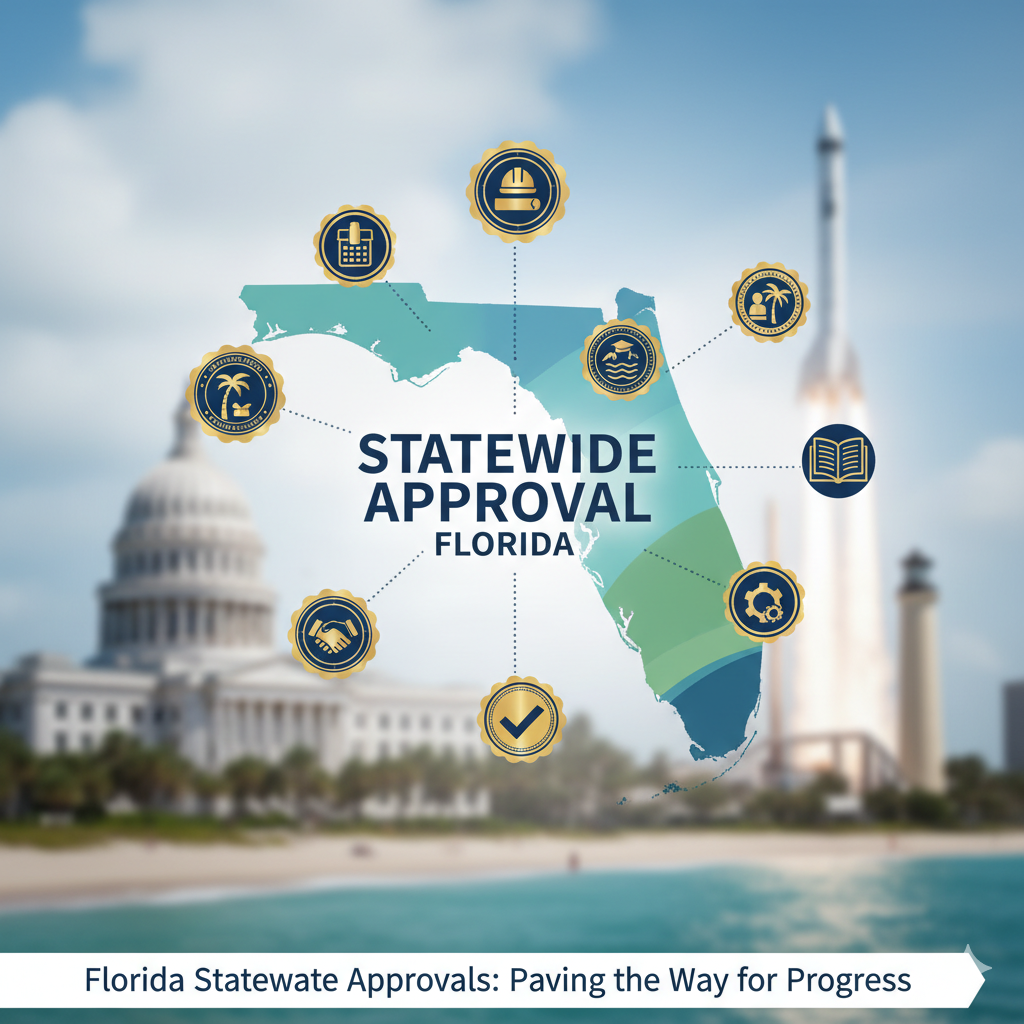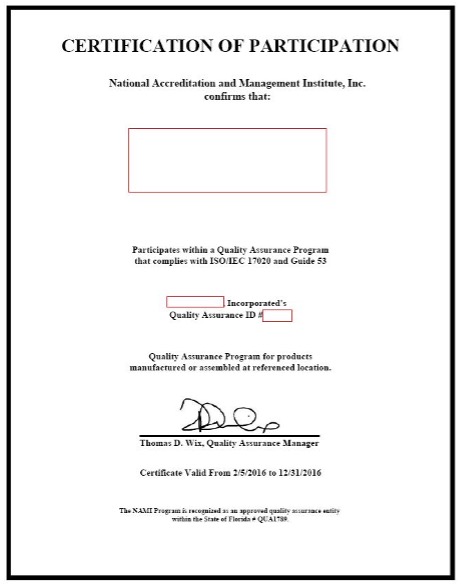Florida Statewide Approvals (FSA): Validator & Quality Assurance Requirements
Florida’s Statewide Product Approval (FSA) system ensures that every product used in construction meets the state’s strict building code requirements. Two key components of this process are Validation and Quality Assurance (QA) — both critical for maintaining credibility and compliance throughout a product’s approval lifecycle.

The Role of the Validator
A Validator acts as an independent reviewer, ensuring that every product submittal meets the administrative and procedural requirements of the Florida Building Commission (FBC) before it enters the approval process. The validator confirms that all documentation is complete, consistent, and prepared in accordance with Florida Building Code standards.
Working independently from the manufacturer and evaluator, the validator verifies that the evaluator is a Florida-licensed Professional Engineer or Registered Architect, that test reports and rational analyses come from accredited laboratories, and that installation instructions match the approved evaluation report. The validator also confirms that a third-party Quality Assurance (QA) program is identified and current. While they do not perform technical or engineering reviews, validators serve as the administrative gatekeepers who ensure that submittals are accurate, transparent, and ready for state review.
The Role of the Quality Assurance Agency
A Quality Assurance (QA) Agency oversees the ongoing integrity of the product itself—ensuring that what is manufactured continues to meet the standards established in the approval. QA entities are independent third parties approved by the FBC, with no financial interest in the product, evaluator, or manufacturer.
Their responsibilities include annual factory inspections, distribution or site audits, and random testing of production samples to confirm that materials, processes, and performance remain consistent with the approved design. QA audits must occur at intervals not exceeding twelve months, and a current Quality Assurance Date must always be maintained within the FSA record. Without it, the approval becomes invalid. The QA agency, therefore, provides the technical continuity that ensures the product remains compliant long after the validator’s review is complete.
We Can Help With Validation Services
Engineering Express provides validation services for building products we didn’t evaluate.
For building products that we do evaluate, we can concierge a validator for you.
We handle validation services payment through our contract with you, and oversee the entire validaiton process, ensuring everything gets uploaded and approved to the State of Florida Website.
What is Quality Assurance?
In order for a building product (windows, doors, rooftop equipment, etc.) to obtain a Florida Product Approval (FSA) through the evaluation method, a 3rd party Quality Assurance Entity must monitor and provide oversight of the production of the product to ensure it meets the minimum requirements.
About Florida's Quality Assurance Effective Date
Under Rule61G20-3.008 of the Florida Administrative Code, QA agencies must audit both the manufacturer’s quality program and product output through one or more of the following, at least once every 12 months:
- Factory inspections
- Job-site or distribution checks
- Testing of regular production items
An expired QA date immediately invalidates the approval for use in Florida.
An approved list of valid quality assurance agencies can be found
on the Florida website by clicking here.
Click here to see our Directory of QA firms we’ve worked well with in the past.
It is the responsibility of the product manufacturer to initiate a contract with an approved QA agency before submitting their product for approval.
A quality assurance entity must submit that they have no financial interest in the product or company for which it is providing quality assurance.
For guidance with your next project, explore our Plans, Calculators, Knowledge Base,
or contact us directly for site-specific support
Last Update: October 23, 2025
Related Knowledge Base Posts -
- Should a professional utilize the ASD (Allowable Stress Design) method or the LRFD (Load Resistance Factored Design) method when calculating the required wind pressure for use with tested-approved systems?
- Did the wind loading requirements change for rooftop structures for ASCE 7-22 – ASCE 7-16 & The Florida Building Code?
- What wind speed should I use for my project?
- ASCE 7 WIND EXPOSURE CATEGORIES AND HOW EXPOSURE ‘D’ WORKS
- What are the requirements for using ASTM Missile Level E in Florida and the US?
- About ASTM E1996 Missile Levels & Wind Zone 4
